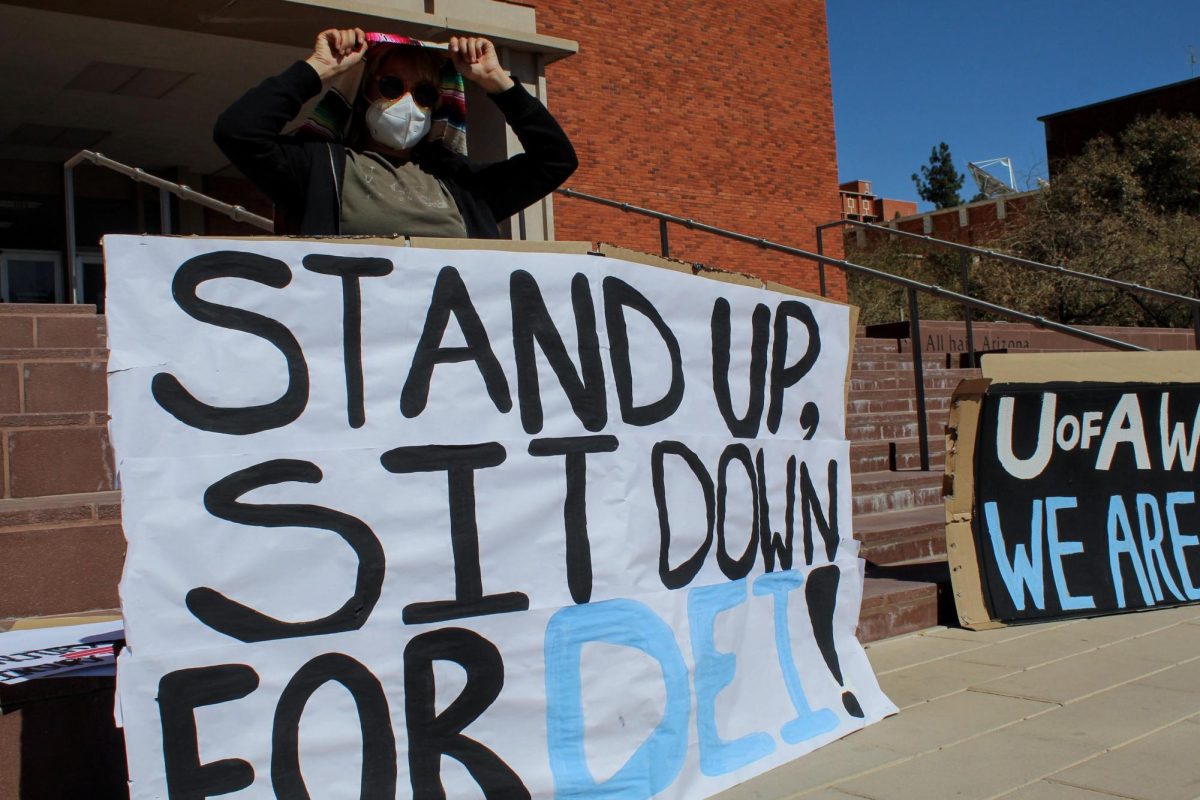There are zombie movies, zombie TV series and even zombie laser tag.
For some reason, zombies have infected the minds of this generation. But why?
“The zombie apocalypse has been presented in many incarnations,” said Brian Mayer, an associate sociology professor. “When things get bad economically, sometimes imagining what seems like an impossible disaster gives us a break from our daily routines.”
Mayer’s current research explores communities’ and individuals’ resilience to disasters.
When analyzing risks, there are two things to consider: anxiety and dread, Mayer said.
People typically dread things that are unfamiliar to them, Mayer said. The other sociological aspect of risk is anxiety, which is caused by the thought of a potentially bad outcome, he added.
“Most of us would put things like the zombie apocalypse or nuclear war quite high on our list of the worst-case scenarios,” Mayer said. “These science fiction shows remind us that things could always be worse.”
Mayer also said he has noticed a shift in society’s focus on health. In the past, people were more concerned with public health, and now people are becoming more obsessed with their personal health, he said.
“With individualized technology like air filters and bottled water, we have almost reached an era,” Mayer said, in reference to the public’s obsession with personal health.
This theme is called the “inverted quarantine,” Mayer said, referencing a book by Andrew Szasz titled “Shopping Our Way to Safety: How We Changed from Protecting the Environment to Protecting Ourselves.”
“It seems like we live in a paranoid generation, and are just waiting for something bad to happen,” said Kristi Fabijanic, an undeclared sophomore.
Fabijanic identifies herself as a fan of the TV series “The Walking Dead,” which reeled in more than 10.4 million viewers between the ages of 18 and 49 for the season four premiere Sunday night, according to AMC’s network statistics.
“What’s cool about ‘The Walking Dead’ is that it is kind of realistic, and that is unsettling,” Fabijanic said.
Although we may not see walkers creeping down the steps of Old Main anytime soon, these concerns of a disease outbreak have foundations in reality, according to Richard Friedman, a professor in the Department of Immunobiology.
Friedman’s research focuses on bacterial pathogenesis and how different microbes cause disease in humans. His most recent research has been on tuberculosis, which is becoming an international problem due to multi-drug resistant strains of the bacteria, he said.
There have been many infectious disease outbreaks throughout history, including the bubonic plague, swine flu and, most recently, the cholera outbreak in Florida, Friedman said.
Some of these modern diseases can mimic symptoms of “zombie-ism,” he said.
Leprosy and syphilis are two modern diseases that somewhat resemble potential zombie diseases, Friedman said.
Leprosy causes nerve damage that numbs a person’s feeling in their outer extremities, Friedman said. The host could be literally falling about and not feel it, he added.
Late-stage syphilis can also causes symptoms similar to what you would see in a zombie, he added.
“At later stages in the disease, it can cause severe neurological effects like dementia and difficulty moving,” Friedman said. “Sometimes the leg will drag, sort of like a zombie.”
Extreme cases like these are typically found in countries with third-world living conditions, Friedman said. If an outbreak were to propagate in the U.S., it would most likely happen in an area with a high population density.
“That’s why college students who live in dorms need vaccinations,” Friedman added.
The other requirement for an outbreak to occur would be poor sanitation conditions, Friedman said.
However, Friedman said he does not think a zombie apocalypse is possible. Other threats like bio-terrorism and antibiotic-resistant bacteria pose a much larger threat to society, he said.
All the science in the world, however, does not seem able to cure society’s obsession with the undead.








